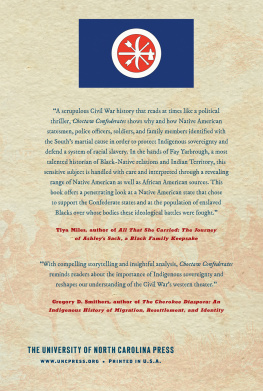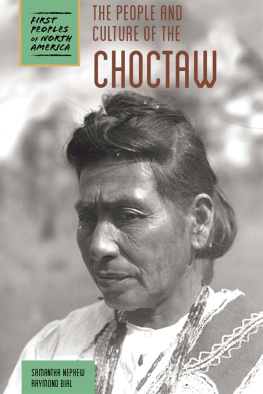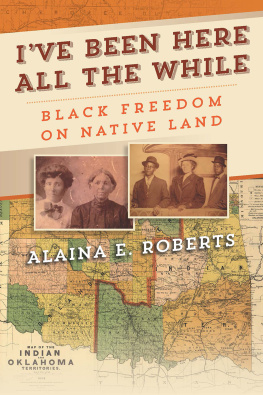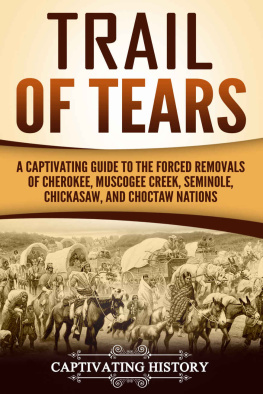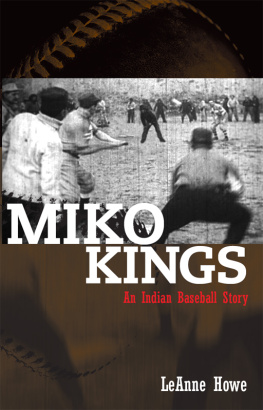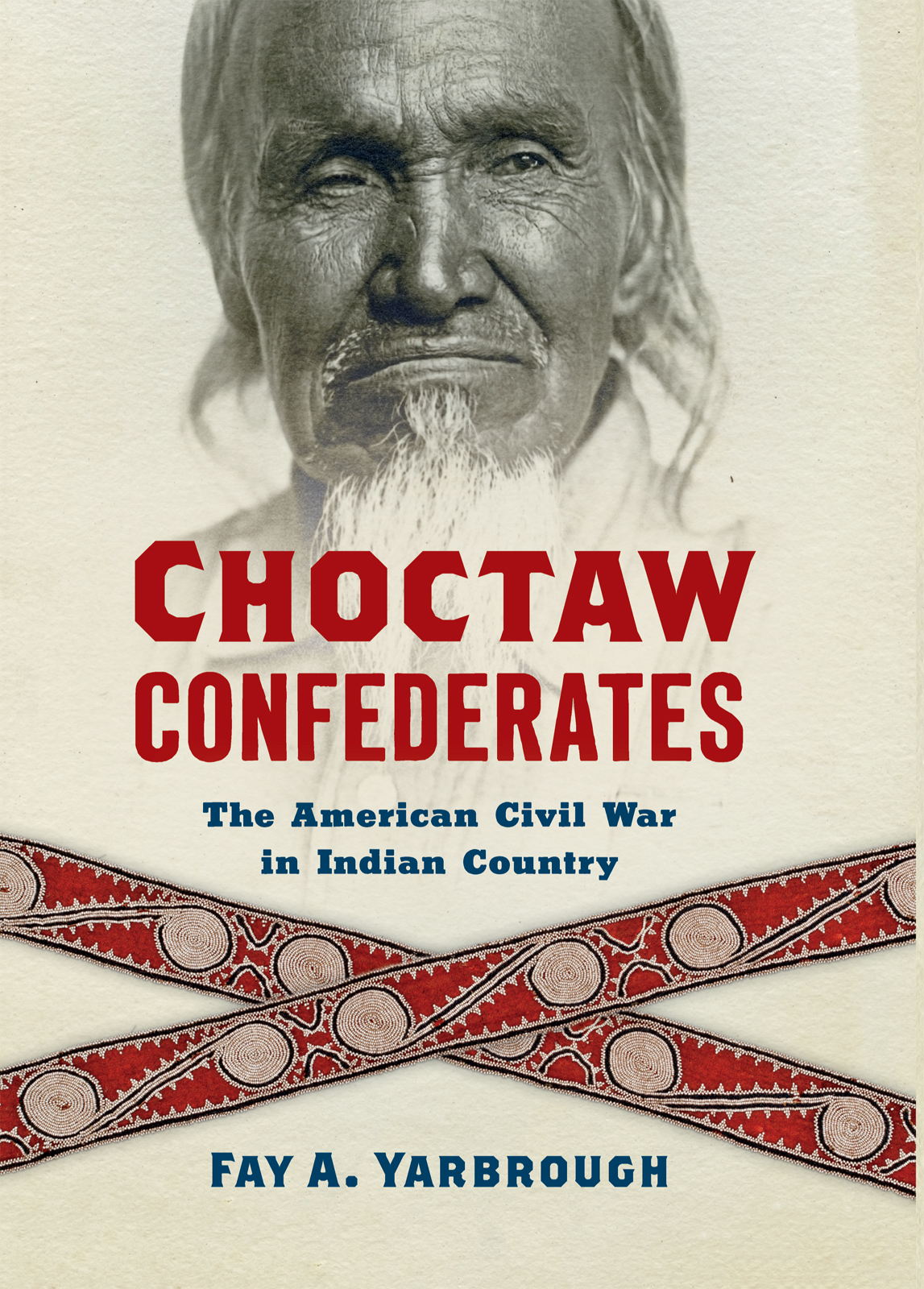CHOCTAW CONFEDERATES
The American Civil War in Indian Country

Fay A. Yarbrough
THE UNIVERSITY OF NORTH CAROLINA PRESS
CHAPEL HILL
Published with the assistance of the Fred W. Morrison Fund of the University of North Carolina Press.
2021 The University of North Carolina Press
All rights reserved
Designed by April Leidig
Set in Arnhem by Copperline Book Services, Inc.
Manufactured in the United States of America
The University of North Carolina Press has been a member of the Green Press Initiative since 2003.
Some material from previously appeared as Women, Labor, and Power in the Nineteenth-Century Choctaw Nation, in Gender and Sexuality in Indigenous North America, edited by Sandra Slater and Fay A. Yarbrough, 12345 (Columbia: University of South Carolina Press, 2011).
A version of originally appeared as Dis Land Which Jines Dat of Ole Masters: The Meaning of Citizenship for the Choctaw Freedpeople, in Civil War Wests: Testing the Limits of the United States, edited by Adam Arenson and Andrew R. Graybill, 22441 (Oakland: University of California Press, 2015).
Front cover, top: Photograph of Hleohtambi, a Choctaw man born in Mississippi in 1825 who served as a Confederate soldier in a Choctaw regiment. Reprinted by permission of the Oklahoma Historical Society. Front cover, bottom: Choctaw sash, ca. 1790, Metropolitan Museum of Art. Back cover, top: Flag of the Choctaw Brigade (1st Choctaw Battalion Cavalry) during the Civil War. Back cover, background: The War in ArkansasThe Battle of Honey Springs, July 17. Defeat of the Rebels under General Cooper by the U.S. troops under Major-General James G. Blunt, from a sketch by James R. ONeill, Frank Leslies Illustrated Newspaper, August 29, 1863.
Library of Congress Cataloging-in-Publication Data
Names: Yarbrough, Fay A., author.
Title: Choctaw Confederates : the American Civil War in Indian Country / Fay A. Yarbrough.
Description: Chapel Hill : The University of North Carolina Press, 2021. | Includes bibliographical references and index.
Identifiers: LCCN 2021015303 | ISBN 9781469665115 (cloth ; alk. paper) | ISBN 9781469665122 (ebook)
Subjects: LCSH: Treaty of friendship & alliance (1861 July 12) | Choctaw IndiansIndian TerritoryHistory. | SlaveryIndian TerritoryHistory. | Choctaw IndiansGovernment relationsHistory19th century. | United StatesHistoryCivil War, 18611865Participation, Indian. | Indian TerritoryRace relationsHistory.
Classification: LCC E540.I3 Y37 2021 | DDC 976.004/97387dc23
LC record available at https://lccn.loc.gov/2021015303
For Arthur, Wilson, and Rivers
Contents
Before the White People Came in Large Numbers and Brought Their Customs: Choctaws in the Southeast
Even If the Master Was Good the Slaves Was Bad Off: Slavery and Racial Ideology in the Choctaw Nation
The Choctaws and Chickasaws Are Entirely Southern and Are Determined to Adhere to the Fortunes of the South: Choosing Sides in the Conflict
We Know Dey Is Indians: Red Soldiers in Gray
Earning Ones Name: Warfare and Choctaw Masculinity
Dis Land Which Jines Dat of Ole Masters: Reconstruction in the Choctaw Nation
Maps and Figures
MAPS
FIGURES
CHOCTAW CONFEDERATES
Introduction
In the fall of 1864, Peter P. Pitchlynn, the newly elected principal chief of the Choctaw Nation, addressed his people with grim determination. He described the rivers of blood that had already been shed and a land filled with widows and orphans as a consequence of an American civil war that raged on with unabated fury and vindictiveness on the part of the foe. In the face of an uncertain outcome, he proclaimed that Choctaws destiny was indissolubly involved in that of the South. By the side of our Confederate friends we must stand or we must fall. Pitchlynn juxtaposed the thousands of southern white men who had deserted the flag of their country and become traitors and thieves with the Choctaw soldiers who stood as firm as their eternal mountains with their honor unsullied and their integrity unaffected. He urged his fellow Choctaws to remain committed to the Confederate cause and ended by again praising the gallant officers and brave men of the allied army of the District of the Indian Territory. Pitchlynns words paint a picture of an Indian nation more committed to the Confederate cause than white southerners were; why and how this came to be is the subject of this book.
Each year hundreds of thousands of people, from both America and abroad, participate in reenactments of American Civil War battles, visit battle sites, and devour literature about the people, places, and events that made up the Civil War. Seldom do they encounter Native history there. And each year authors produce numerous books on the subject in treatments ranging from biographies of military leaders to exegeses on the causes of the war to the fictionalized adventures of Abraham Lincoln, vampire hunter. While centennial or sesquicentennial anniversary years of the war may further concentrate interest, resulting in special journal issues devoted to the war, newspaper editorials about battles, university lecture series on the subject, and special programs designed to encourage visitors to explore important Civil War locations at state and national parks, the war never really fades from the public imagination. And why should it? The Civil War is a defining moment in American history.
What many overlook, however, is that the Civil War was not just a rupture between northern and southern states and Americans over the issue of slavery; other groups were drawn into the fray. Though we now sometimes acknowledge the participation of Black soldiers in the Union army, the war evokes images of white men clashing in blue and gray uniforms on familiar battlegrounds: Antietam, Gettysburg, Chickamauga. But there were other battlefields out west, such as Honey Springs and Locust Grove, and other people for whom this war was a watershed.
Several American Indian nations, including the Choctaw Nation, officially sided with the Confederacy during the Civil War. Choctaw legislative documents from the era reveal that Choctaw lawmakers spent a great deal of time talking about their commitment to the Confederate States of America. Choctaw legal authorities even passed a measure demanding that all whites living in the Choctaw Nation swear allegiance to the Confederate cause. They then adjudged any criticism of the Confederacy or of the Confederate army to be a form of treason against the Choctaw Nation punishable by death. Lawmakers raised an infantry force, and later a cavalry, to fight with the Confederate forces. This book explores the reasons for this level of commitment to the Confederate cause among the Choctaw and examines aspects of Confederate ideology that appealed to Choctaw authorities.
Choctaw Indians and other Native groups were deeply concerned about issues of states rights and sovereignty. The attempts by the states of Mississippi and Georgia to unilaterally extinguish Native sovereignty rights in the decade prior to the forced removal of Native groups from the southeastern United States in the 1830s represented only the most recent in a long history of assaults on Native self-government and territorial claims. Removal policy itself starkly demonstrated that the federal government would do little to protect Native rights to land. Thus, precisely what Confederate states meant when they claimed states rights could have profound consequences for Native nations. Choctaw leaders hoped that a strong commitment to states rights would translate into respecting Native sovereignty rights as well, which would permit the Choctaw Nation to maintain rights to land and self-government.

